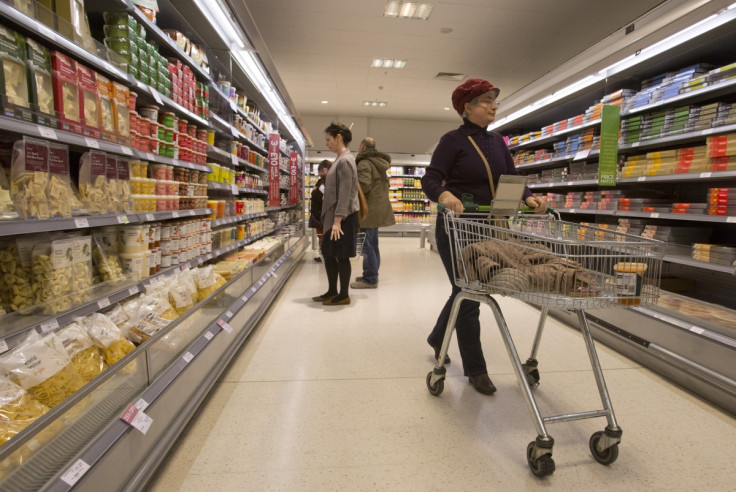Britain is 'sleepwalking' into a post-Brexit food price crisis, report claims
Academics criticise government's 'astonishing' lack of actions on food and agriculture sectors

Britain is in danger of "sleepwalking" into a post-Brexit future characterised by higher food prices and unsafe and insecure food supplies, a report has said.
The research, compiled by food policy experts from three British universities, warns the government that the public have become accustomed to take low food prices and stable food supplies for granted over the last couple of decades.
However, the European Union is largely responsible for both and leaving the bloc could have a serious impact on Britain's food industry, the report asserts. More worryingly, the research claims that the government has little idea of how to tackle such a momentous change, highlighting a lack of action in areas related to food and farming.
"With the Brexit deadline in 20 months, this is a serious policy failure on an unprecedented scale," said Tim Lang, professor of food policy at City University who compiled the research along with Prof Erik Millstone and Prof Terry Marsden from Sussex University and Cardiff University respectively.
Millstone added the government's behaviour so far had been baffling.
"We are surprised at the failure of the government to address a huge set of issues related to food and agriculture," he said. "They give the impression of sort of sleepwalking into this."
The report comes as David Davis travels to Brussels for a second round of formal talks with EU leaders. The Brexit secretary said he would be "getting into the real substance" of negotiations with the other member states.
According to the 88-page document, a host of EU fisheries and agricultural policies would have needed to have been amended even if Britain had chosen to remain part of the bloc. But the Brexit process has triggered a number of more pressing issues.
By ignoring complications related to the food and agriculture sectors "the risk is that food security in the UK will be seriously undermined," the report adds.
"There are also serious risks that standards of food safety will decline if the UK ceases to adopt EU safety rules, and instead accepts free-trade agreements with countries with significantly weaker standards," the academics said.
The authors of the report were highly critical of the government's conduct, suggesting the issues related to the food sector had been largely ignored.
"The silence about the future of UK food since the Brexit referendum is an astonishing act of political irresponsibility and suggests chaos unless redressed," they said.
"Given the importance of UK food supply, the silence from government on the labour question is astonishing."
Food prices to soar
Higher tariff costs and the pound's ongoing decline could push food prices higher post-Brexit, dealing a major blow to suppliers and customers. The issue would be exacerbated by Britain's reliance on overseas producers, given the UK imports 80% of its fresh vegetables and 40% of fresh fruit.
The often-criticised EU subsidies for farmers have helped keep rices under control, the report states, although that luxury could soon disappear. The government has pledged to keep them in place until 2022, but it offered no clues as to what it will happen thereafter.
"If UK agricultural markets are radically deregulated, and all production subsidies ended, they will once again become chronically prone to volatilities of supplies and prices," the authors warn.
"That pivotal fact has been forgotten by many who have become accustomed to the relative stability in prices and supplies that European and British consumers experienced since the 1960s."
© Copyright IBTimes 2025. All rights reserved.





















